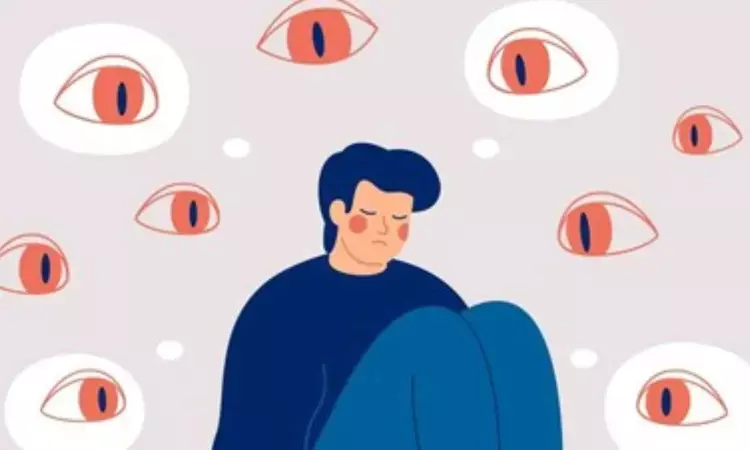- Home
- Medical news & Guidelines
- Anesthesiology
- Cardiology and CTVS
- Critical Care
- Dentistry
- Dermatology
- Diabetes and Endocrinology
- ENT
- Gastroenterology
- Medicine
- Nephrology
- Neurology
- Obstretics-Gynaecology
- Oncology
- Ophthalmology
- Orthopaedics
- Pediatrics-Neonatology
- Psychiatry
- Pulmonology
- Radiology
- Surgery
- Urology
- Laboratory Medicine
- Diet
- Nursing
- Paramedical
- Physiotherapy
- Health news
- Fact Check
- Bone Health Fact Check
- Brain Health Fact Check
- Cancer Related Fact Check
- Child Care Fact Check
- Dental and oral health fact check
- Diabetes and metabolic health fact check
- Diet and Nutrition Fact Check
- Eye and ENT Care Fact Check
- Fitness fact check
- Gut health fact check
- Heart health fact check
- Kidney health fact check
- Medical education fact check
- Men's health fact check
- Respiratory fact check
- Skin and hair care fact check
- Vaccine and Immunization fact check
- Women's health fact check
- AYUSH
- State News
- Andaman and Nicobar Islands
- Andhra Pradesh
- Arunachal Pradesh
- Assam
- Bihar
- Chandigarh
- Chattisgarh
- Dadra and Nagar Haveli
- Daman and Diu
- Delhi
- Goa
- Gujarat
- Haryana
- Himachal Pradesh
- Jammu & Kashmir
- Jharkhand
- Karnataka
- Kerala
- Ladakh
- Lakshadweep
- Madhya Pradesh
- Maharashtra
- Manipur
- Meghalaya
- Mizoram
- Nagaland
- Odisha
- Puducherry
- Punjab
- Rajasthan
- Sikkim
- Tamil Nadu
- Telangana
- Tripura
- Uttar Pradesh
- Uttrakhand
- West Bengal
- Medical Education
- Industry
Antipsychotic Use Increases Risk of Severe respiratory Infections in Schizophrenia Patients: Lancet

A new nationwide Danish study published in The Lancet Psychiatry found that individuals with schizophrenia spectrum disorders face an increased risk of severe respiratory infections during treatment with antipsychotic drugs. This risk applies not only to COVID-19 infections but also to non-COVID respiratory infections which raises significant concerns about infection management for this vulnerable population.
The research analyzed data from a total of 85,083 individuals with schizophrenia spectrum disorders in Denmark from March 1, 2020 to December 31, 2021. The study assessed the effect of antipsychotic treatment on the risk of contracting both COVID-19 and non-COVID respiratory infections, with particular attention to outcomes such as hospitalization and death.
Among the 85,083 individuals included in the study, 30,984 had periods where they were exposed to antipsychotic medication. The study identified both "prevalent users" and "incident users" of antipsychotics, meaning the ones who were long-term users and the ones newly starting treatment during the study period.
When comparing periods of antipsychotic exposure with non-exposure, the study found a reduced risk of mild infection (positive SARS-CoV-2 test) in patients on antipsychotics (hazard ratio 0.91) that suggests some protective factors during treatment. No statistically significant difference in the prescription of anti-infective drugs which indicated no major effect of antipsychotics on the use of medications to treat infections.
When it came to severe infection outcomes, the results found the risk of COVID-19-related hospitalization being higher in individuals on antipsychotics (1.28 times more likely), despite the risk of COVID-19-related death was not statistically significant. For non-COVID respiratory infections, both hospitalization (1.61 times more likely) and death (1.61 times more likely) risks were significantly increased during antipsychotic exposure.
Age was also found to be a major factor, where the COVID-19-related hospitalization risk was particularly increased in individuals over 70, while the risk of non-COVID respiratory infections leading to hospitalization was markedly higher in people over 40. The risk of death due to non-COVID infections was increased in the 50-59 and 70-79 age groups.
The study suggests that infection countermeasures, including pneumococcal vaccinations, should be strongly considered for people with schizophrenia spectrum disorders who are on antipsychotic treatment, particularly the ones older than 40. With schizophrenia patients already more vulnerable to infections, this research illuminates the need for targeted healthcare interventions to minimize preventable complications during treatment.
Reference:
Nersesjan, V., Christensen, R. H. B., Andersen, E. W., Kondziella, D., & Benros, M. E. (2024). Antipsychotic exposure and infection risk in people with schizophrenia spectrum disorders during the COVID-19 pandemic: a Danish nationwide registry study. In The Lancet Psychiatry (Vol. 11, Issue 10, pp. 796–806). Elsevier BV. https://doi.org/10.1016/s2215-0366(24)00223-2
Neuroscience Masters graduate
Jacinthlyn Sylvia, a Neuroscience Master's graduate from Chennai has worked extensively in deciphering the neurobiology of cognition and motor control in aging. She also has spread-out exposure to Neurosurgery from her Bachelor’s. She is currently involved in active Neuro-Oncology research. She is an upcoming neuroscientist with a fiery passion for writing. Her news cover at Medical Dialogues feature recent discoveries and updates from the healthcare and biomedical research fields. She can be reached at editorial@medicaldialogues.in
Dr Kamal Kant Kohli-MBBS, DTCD- a chest specialist with more than 30 years of practice and a flair for writing clinical articles, Dr Kamal Kant Kohli joined Medical Dialogues as a Chief Editor of Medical News. Besides writing articles, as an editor, he proofreads and verifies all the medical content published on Medical Dialogues including those coming from journals, studies,medical conferences,guidelines etc. Email: drkohli@medicaldialogues.in. Contact no. 011-43720751


